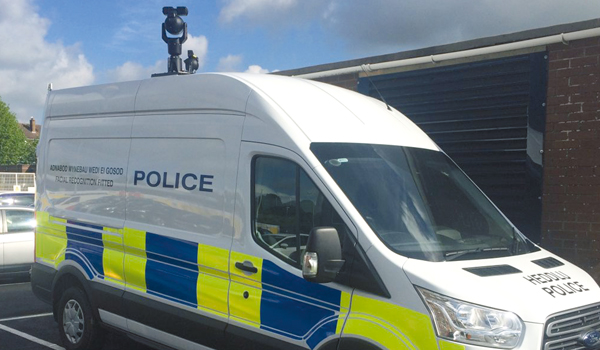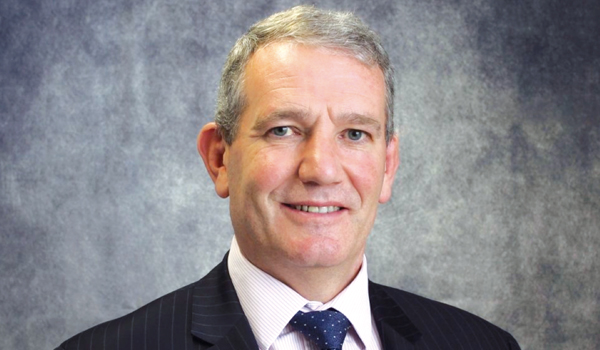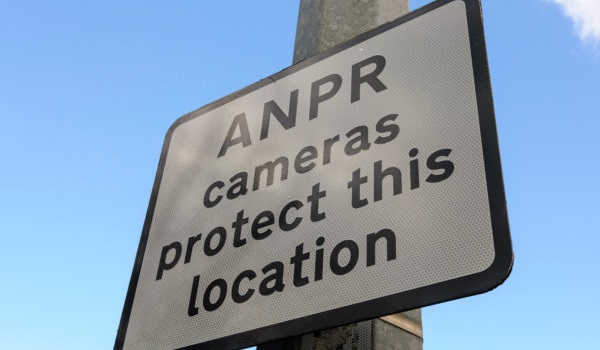Ruling that AFR is unlawful 'not fatal' to future use of the technology
Police use of facial recognition technology is unlikely to end despite a landmark legal ruling which found that trials of these systems have breached human rights and data protection laws.
Campaigners seeking to end the use of such technology have claimed a victory after the Court of Appeal ruled on Tuesday (August 11) that there were “fundamental deficiencies” in the legal framework governing its deployment by South Wales Police, the lead police force trialling automated facial recognition (AFR).
The judgment was the result of a case brought by Ed Bridges, a civil liberties campaigner, who was scanned by AFR in Cardiff in 2017 and 2018 and who argued that capturing of thousands of faces in this way was indiscriminate.
The court held that Mr Bridges’ right to privacy, under article 8 of the European Convention on Human Rights, was breached because there was “too broad a discretion” left to police officers as to who to put on its watchlist of suspects.
South Wales Police was also found to have breached its public sector equalities duty, the judges said, by failing to properly investigate whether the facial recognition software was biased in terms of race or sex.
Mr Bridges said: “I’m delighted that the court has agreed that facial recognition clearly threatens our rights.
“This technology is an intrusive and discriminatory mass surveillance tool. For three years now South Wales Police has been using it against hundreds of thousands of us, without our consent and often without our knowledge. We should all be able to use our public spaces without being subjected to oppressive surveillance.”
Megan Goulding, a lawyer at human rights group Liberty, which supported Mr Bridges in the case, said: “This judgment is a major victory in the fight against discriminatory and oppressive facial recognition.
“The court has agreed that this dystopian surveillance tool violates our rights and threatens our liberties. Facial recognition discriminates against people of colour, and it is absolutely right that the court found that South Wales Police had failed in their duty to investigate and avoid discrimination.
“It is time for the Government to recognise the serious dangers of this intrusive technology. Facial recognition is a threat to our freedom – it needs to be banned,” she said.
However, while those opposed to the use of facial recognition said the judgment is unequivocal in bringing all trials to an end, those in favour of the technology say the ruling simply means that AFR must be used in accordance with a very clear, detailed and proportionate legal framework, which until now has been lacking.
South Wales Police Deputy Chief Constable Jeremy Vaughan, who is the national policing lead for facial recognition said: “There is nothing in the Court of Appeal judgment that fundamentally undermines the use of facial recognition to protect the public. This judgement will only strengthen the work which is already underway to ensure that the operational policies we have in place can withstand robust legal challenge and public scrutiny.”
Tony Porter, the independent Surveillance Camera Commissioner, agreed that the ruling would not stop police forces using facial recognition. “I do not believe the judgment is fatal to the use of this technology, indeed, I believe adoption of new and advancing technologies is an important element of keeping citizens safe,” he said.
South Wales Police Chief Constable Matt Jukes said: “The test of our ground-breaking use of this technology by the courts has been a welcome and important step in its development. I am confident this is a judgment that we can work with. Our priority remains protecting the public, and that goes hand-in-hand with a commitment to ensuring they can see we are using new technology in ways that are responsible and fair.
“After our approach to these issues was initially endorsed by the Divisional Court and now that the Court of Appeal has given further scrutiny on specific points, we will give their findings serious attention.
“The Court of Appeal’s judgment helpfully points to a limited number of policy areas that require this attention. Our policies have already evolved since the trials in 2017 and 2018 were considered by the courts, and we are now in discussions with the Home Office and Surveillance Camera Commissioner about the further adjustments we should make and any other interventions that are required.”
Jason Sierra, sales director at Seven Technologies Group, has been actively vocal in the need for facial recognition algorithms and other intelligent technologies in policing, but acknowledges that the Court Of Appeal ruling further highlights the necessity for clear guidelines and legislation determining appropriate use of the technology.
“The ruling does not diminish the clear need for facial recognition technology in policing,” he said. “Facial recognition algorithms will speed up police investigations into serious crimes and, ultimately, help to improve public safety and national security.
“So far, facial recognition has assisted police to find murderers on the run and to find victims of kidnapping and modern slavery. Its usefulness in creating a safer world cannot be denied. What this case has highlighted is an absolute need for guidelines and legislation determining appropriate use of the technology, and greater transparency around how and when it is used.”
Mr Sierra added: “Tony Porter, the independent Surveillance Camera Commissioner, has been campaigning to update the Surveillance Camera Code of Practice. An update would provide the clarity needed around how police forces can use new technologies, like facial recognition, when they are appropriate and how to use them in an ethical manner.”
A spokesperson for the Information Commissioner’s Office said it welcomed the Court of Appeal’s judgment in providing “clarification on the police use of live facial recognition technology in public places”.
They added: “Facial recognition relies on sensitive personal data and balancing people’s right to privacy with the surveillance technology the police need to carry out their role effectively is challenging.
“But for the public to have trust and confidence in the police and their actions there needs to be a clear legal framework. Today’s judgment is a useful step towards providing that.”
In addition to South Wales Police, facial recognition technology is also being used by the Metropolitan Police Service and Leicestershire Police.
Last month, the Lincolnshire police and crime commissioner announced that a facial recognition feature would be part of a £250,000 CCTV upgrade in the town of Gainsborough.
Technology groups such as Amazon and Microsoft announced earlier this year that they would at least temporarily stop providing law enforcement agencies with facial recognition tools amid concerns that such systems were biased against women and those from ethnic minorities.
Last year San Francisco became the first city in the US to ban the use of facial recognition by local authorities.





